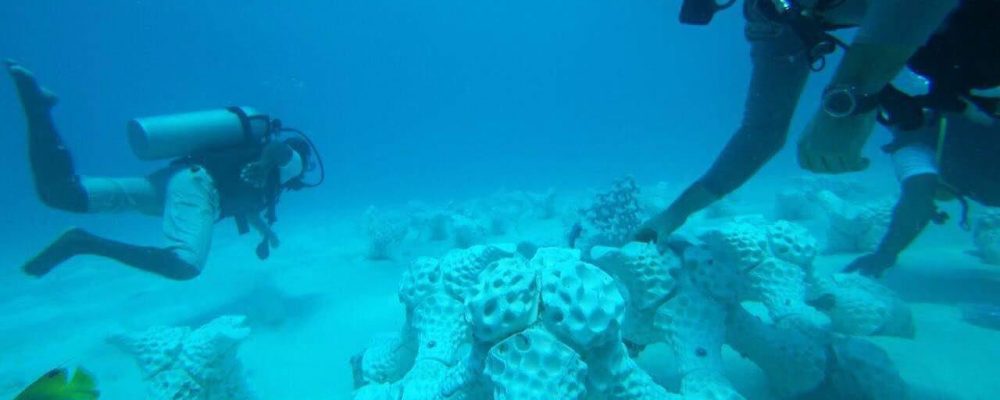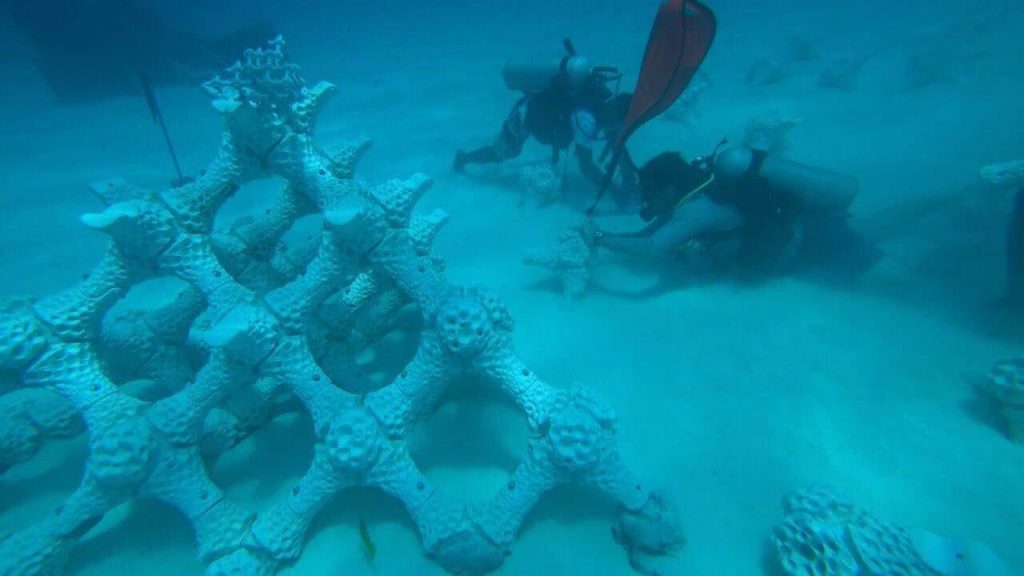The world’s largest 3-D printed reef was submerged yesterday at Summer Island Maldives, in what is hoped could be a new technology-driven method to help coral reefs survive a warming climate.
The artificial reef, assembled with hundreds of ceramic and concrete modules, was submerged at Summer Island’s ‘Blue Lagoon’ – a sandy part of the lagoon, where the resort hopes to create a new coral reef ecosystem.
The project started in a lab in Melbourne, Australia, where industrial designer Alex Goad of Reef Design Lab used sophisticated computing modeling to design reef structures similar to the coral reefs found naturally in the Maldives.
A large 3-D printer whirred away for 24 hours to print moulds of the reef structures. These moulds were cast in ceramic – an inert substance, similar to the calcium carbonate found in coral reefs. The ceramic moulds were shipped to the Maldives, and filled with marine concrete on the beach at Summer Island.
220 ceramic, concrete filled moulds were then slotted together, like a giant LEGO set, to create the new reef.
The new reef sits in seven metres of water, close to the resort’s existing coral nursery. Fragments of coral from the nursery are being transplanted onto the 3-D reef, where they will grow and
colonise the structure.
As Alex explains: “3-D printing technology helps us to develop more innovative ways of protecting coral reefs. The technology allows us to mimic the complexity of natural reef structures, so we can design artificial reefs that closely resemble those found in nature. We hope this will be a more effective way of growing and restoring corals.”
In a year or two, when the corals have grown over the 3-D reef, the resort hopes to have a new, natural looking reef, teeming with fish and marine life.
If the 3-D printing technology proves more successful at growing corals than existing coral propagation methods, it could be a novel way of helping coral reefs survive a warming climate.
The Maldives is one of the world’s most climate-vulnerable nations. Rising sea temperatures pose a grave threat to the world’s coral reefs, and mass bleaching events are becoming more common and more severe.
Summer Island Maldives has implemented a number of recent environmental initiatives, including the adoption of solar energy, a ban on the use of plastic straws, phasing out imported drinking water, and coral conservation projects.
Summer Island Resort Manager Mari Shareef explains: “Projects like the 3-D printed reef are popular among guests, who like that we protect our environment. And it’s not only for the guests. Our staff, most of whom are Maldivian, want to protect their environment too. Ultimately, we want to help promote a culture of environmental stewardship, not just at Summer Island, but across the Maldives.”




